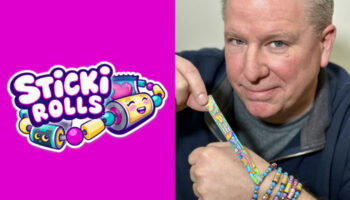Ethical toy sourcing gathers pace in 2019

2018 was an exciting year for the ICTI Ethical Toy Program.
Highlights from the last 12 months include the launch of our refreshed Ethical Toy Program branding which reflects our role as the leading responsible sourcing program for the global toy industry. We also introduced major upgrades and enhancements to our program including a new risk-rated audit checklist, updated ethical toy factory certification, and increased support for toy factories.
LEGO was amongst the many toy companies which joined our new buyer membership program, which offers advanced tools and support to help brands and retailers to source toys responsibly.
Our successful worker well-being programs, now in their fourth year of operation, reunited thousands of domestic migrant parent workers with their left-behind children in China whilst also advancing women’s empowerment at toy factories in India in 2018.
On the global stage, 2018 brought new legislation, regulation and initiatives focussed on ethical sourcing issue areas. Examples included France’s Devoir de vigilance (corporate duty of vigilance) along with soon-to-be-enacted anti-slavery laws in Australia and Hong Kong SAR. Alongside established legislation in the UK and the US, these new laws create obligations for toy companies to illustrate what they have done to combat slavery within their supply chains.

At the same time, global sustainability initiatives such as the Sustainable Development Goals (SDGs) and the UN Guiding Principles (UNGPs) on Human Rights continue to place obligations on toy companies to consider wider risks in their supply chains.
Looking ahead, 2019 will bring further legislative requirements on modern day slavery, with a particular focus on responsible recruitment practices employed at factories in supply chains. Ethical Toy Program Certification prohibits all forms of forced labour. The good news for the toy industry is that you can reference membership of the Ethical Toy Program to show conformity with modern day slavery legislation.
The UNGPs are fast emerging as the benchmark against which companies’ efforts to address human rights risks are judged; they require companies of all sizes to conduct due diligence to map human rights risks in their supply chains, protect and respect the rights of workers, and remedy negative human rights impacts.
At the moment the UNGPs are voluntary for businesses, but the German Government is amongst others which are considering legislation to ensure compliance with the UNGPs should voluntary efforts prove ineffective.
The SDGs – designed as a blueprint to build a sustainable future – have now been adopted by 170 countries and territories. In 2019 the SDGs will continue to drive governments and businesses to take action to address a broad range of sustainability issues.
The SDGs also create opportunities for companies to embrace positive changes that deliver business benefits in their supply chains. Experience shows us that investing in worker well-being at toy factories can boost efficiencies, reduce costs and increase recruitment and retention.
Supporting our toy brand and retailer members to manage supply chain risks, comply with regulatory requirements on sustainability issues, and realise the business benefits of ethical manufacturing are our common goals at the Ethical Toy Program.
We offer deep knowledge and expertise of ethical manufacturing in the toy industry. Membership of our program provides the tools, insights and support your toy company needs to make a long-standing commitment to ethical sourcing and to support the rights of workers in your global supply chain.
In 2019 we encourage toy brands and retailers of all sizes to embrace responsible sourcing by joining the Ethical Toy Program, thereby helping to ensure that toys are manufactured in a way which is consistent with the values of the industry.
Click here to find out more about how to join our program.

























